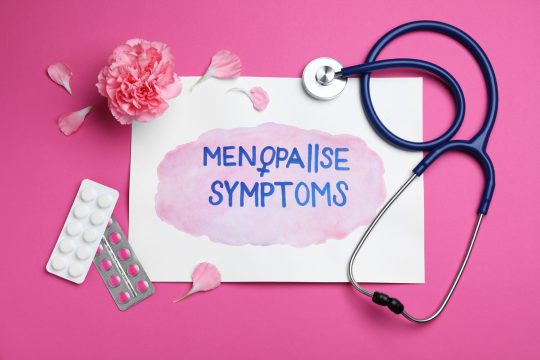June 12, 2024
What Are Common Signs of Menopause?
Menopause is a natural phase in a woman’s life, typically occurring between 45 and 55, marking the end of menstrual cycles. It can bring various physical and emotional changes due to fluctuating hormone levels. Understanding the common signs of menopause can help you manage the transition more effectively. Here’s what you need to know about menopause symptoms and how our Women’s Center of Athens team can support you.
Common Symptoms of Menopause
Hot Flashes
One of the most well-known symptoms, hot flashes are sudden feelings of warmth that spread over the body, often causing redness and sweating, particularly on the face, neck, and chest. These can last a few seconds to several minutes and can be very uncomfortable.
Night Sweats
Similar to hot flashes, night sweats occur during sleep and can lead to severe sweating that disrupts sleep. Many women find these particularly distressing as they impact rest and overall energy levels.
Irregular Periods
Menstrual cycles often become irregular in the years leading up to menopause (perimenopause). Periods might be heavier or lighter than usual, and the time between them can vary significantly before stopping altogether.
Vaginal Dryness
Reduced estrogen levels can cause the vaginal tissues to become dry and less elastic, leading to discomfort or pain during intercourse and increased risk of urinary tract infections (UTIs).
Mood Changes
Hormonal fluctuations can lead to mood swings, irritability, and increased risk of depression and anxiety. Emotional symptoms are often compounded by the physical changes and sleep disturbances that accompany menopause.
Sleep Problems
Insomnia and other sleep disturbances are common due to night sweats and anxiety. Lack of restful sleep can exacerbate other menopausal symptoms and affect overall quality of life.
Weight Gain and Slowed Metabolism
Many women experience weight gain during menopause. This is partly due to hormonal changes and a slower metabolism. Maintaining a healthy diet and regular exercise can help manage weight.
Thinning Hair and Dry Skin
Hormonal changes can lead to hair loss or thinning and changes in skin texture, making it dryer and more prone to wrinkles.
Loss of Breast Fullness
Some women notice a decrease in breast fullness and changes in breast tissue.
Memory Issues
Cognitive changes such as forgetfulness and difficulty concentrating, often called “brain fog,” can occur during menopause.
Managing Menopause Symptoms
While menopause is a natural part of aging, its symptoms can significantly affect daily life. Here are some strategies to manage them:
Lifestyle Changes
Regular exercise, a balanced diet, and staying hydrated can help manage weight and improve overall well-being. Reducing caffeine and alcohol intake and avoiding spicy foods can also reduce hot flashes.
Hormone Therapy
Hormone replacement therapy (HRT) can be effective in relieving many menopausal symptoms, including hot flashes and vaginal dryness. It’s important to discuss the benefits and risks with your healthcare provider.
Non-Hormonal Treatments
For those who cannot or prefer not to use hormone therapy, options such as antidepressants, gabapentin, and clonidine can help manage hot flashes and mood changes.
Vaginal Estrogen
Available as a cream, tablet, or ring, vaginal estrogen can specifically address vaginal dryness and discomfort during intercourse.
Mental Health Support
Counseling, support groups, and sometimes medication can help manage mood swings, anxiety, and depression.
Key Takeaways
- Know the Symptoms: Understanding what to expect can help you prepare and manage symptoms effectively.
- Seek Support: Don’t hesitate to discuss symptoms with your healthcare provider at the Women’s Center of Athens. They can provide tailored advice and treatment options.
- Healthy Lifestyle: Adopting a healthy lifestyle can mitigate some physical menopause-related changes.
Menopause is a significant transition, but you can navigate it successfully with the proper support and management strategies. For more information or to schedule a consultation, visit our website or call us at 706-227-8999.
By being informed and proactive, you can make this phase of life more manageable and continue to enjoy good health and well-being.
Learn more from these resources:
- Mayo Clinic
- Cleveland Clinic
- NHS Inform
Category:
Book Appointment
For new patients, call us to find a convenient appointment time or use our online Patient Portal to request an appointment.
Categories
Stay Connected with Our Community
Join us on Instagram for the latest updates, health tips, and a peek into our daily activities at the Women’s Center of Athens.
We provide comprehensive healthcare for women, by women.





